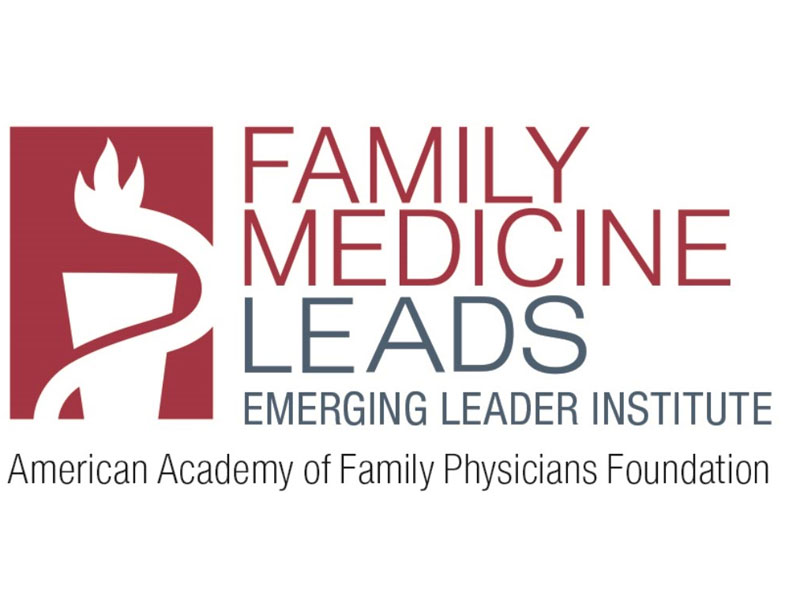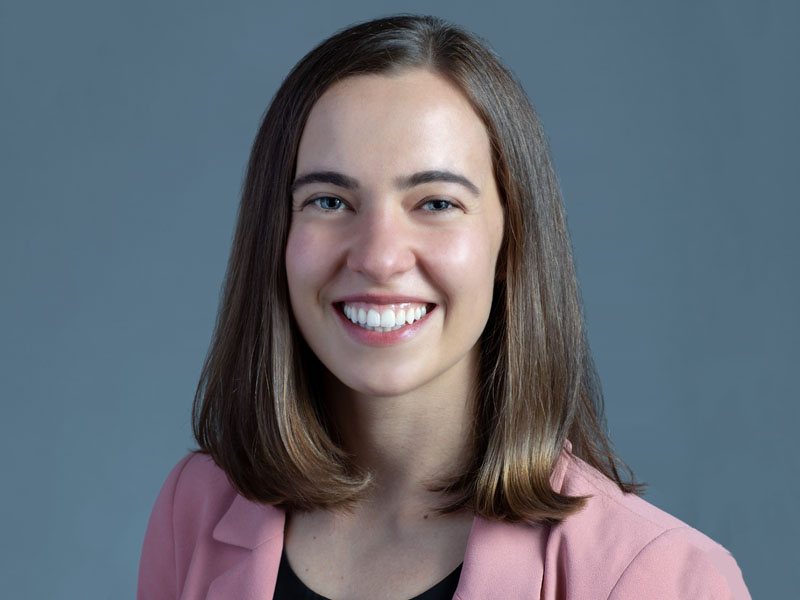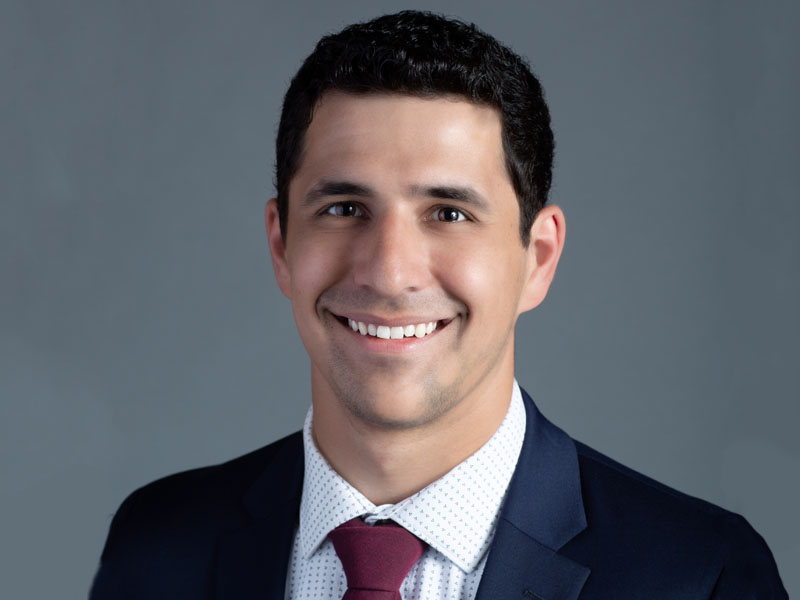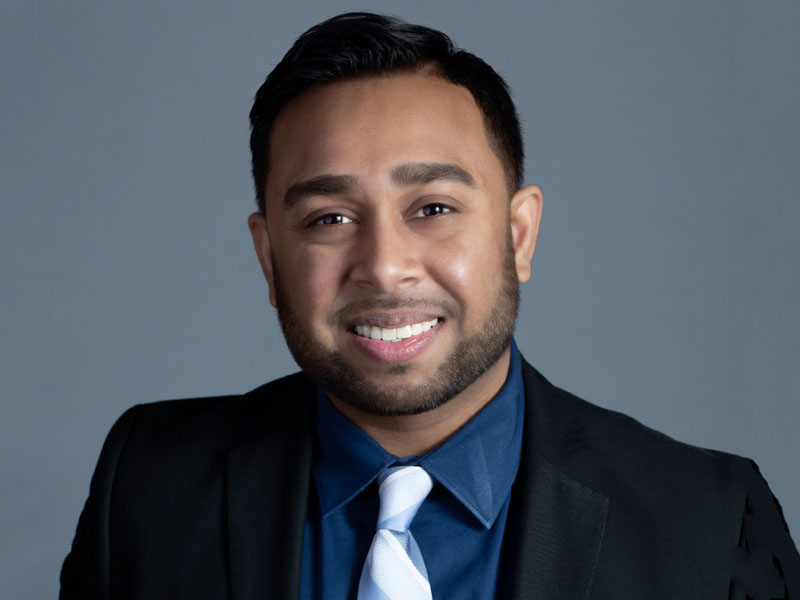Best Project Winners Named By Emerging Leader Institute
August 25, 2020, 12:18 pm Michael Devitt -- At this year's National Conference of Family Medicine Residents and Medical Students, the AAFP Foundation announced the project award recipients from the Family Medicine Leads Emerging Leader Institute's fifth class of participants.

The program, which debuted in 2015, provides up-and-coming residents and students with a yearlong training opportunity in leadership development, with the long-term goal of creating a group of young, well-trained leaders who will advance the specialty in the coming years.
All 30 scholars from the 2019 class received a $1,000 scholarship to attend the program and the National Conference of Family Medicine Residents and Medical Students in Kansas City, Mo., last year.
The scholars participated in a series of rigorous day-and-a-half workshops at the Academy's headquarters in Leawood, Kan., that focused on three tracks:
- Policy and Public Health Leadership,
- Personal and Practice Leadership, and
- Philanthropic and Mission-driven Leadership
Each scholar was then assigned a mentor to guide them in creating a post-conference project based on their chosen study track.
Story Highlights
The AAFP Foundation Board of Trustees reviewed each project and awarded three scholars from each study track an additional stipend so they could return to this year's National Conference to present their projects. The scholars were given the option to attend the conference as part of the award, and also prepared posters of their project work, which was viewable in the online poster hall during the conference.
The overall best project award winner from each study track received an additional $3,000 scholarship to participate in an AAFP or AAFP Foundation national event related to their track.
For 2020, the three best project award winners were:
- Elizabeth (Libby) Wetterer, M.D., Policy and Public Health Leadership;
- Matthew Traxler, M.D., Personal and Practice Leadership; and
- Nigel Jagoo, M.S., M.S.M., Philanthropic and Mission-driven Leadership.

Policy & Public Health Leadership Best Project
Wetterer, who was a third-year medical student at the Georgetown University School of Medicine in Washington, D.C., when she participated in the program, sought to combine her interests in adolescent medicine, mental health and immigrant health through her project, titled "Screening for Traumatic Stress in Latinx Immigrant Adolescents," at a high school-based health clinic.
Now a resident in the Department of Family and Social Medicine at Montefiore Medical Center, Bronx, N.Y., Wetterer acknowledged at the beginning of her presentation at National Conference that, as a white woman, she could not fully understand the experience of being part of the community that she was reporting on. But she said the year spent working on her project gave her considerable time to reflect on what it means to perform leadership work in this community.
The project had three goals:
- estimate the prevalence of symptoms of traumatic stress among the students she was working with,
- assess the current capacity of school-based mental health services, and
- increase the visibility of and enrollment in the school-based health center.
For her project, Wetterer used the Trauma Symptom Checklist for Children, a validated screening tool containing several clinical scales that asked participants about symptoms of traumatic stress, along with a supplemental questionnaire that obtained basic demographic information. Participants completed assessments in the clinic, and then were debriefed by Wetterer, a resident or a pediatrician at the health center, with follow-up visits scheduled as necessary.
One of the most important data points Wetterer noted was that half of the surveyed students felt they needed more support for their emotions.
"To me, this is what matters most because students know themselves best and I think among the adolescent population there's a tendency to underreport the need for help," Wetterer said. "This may be a lowball, but it shows us that out of the 80 students we surveyed, 40 of them felt that they need more help and that if this was expanded more broadly it shows that there are a lot of people in this school who need more support."
The data gathered from Wetterer's project has had an immediate impact, as a position for a full-time social worker at the health center has been funded and posted. Wetterer said the project has also identified needs for psychiatric support and more culturally competent staff, and has raised awareness about mental health concerns among school staff.
Wetterer said she learned several lessons from the project. Chief among them: Be ready for feedback and be open to change.
"I presented this at a conference in the fall with my preliminary data and got some feedback about not acknowledging that I was a white woman working in this Latinx community," said Wetterer. "That was hard to hear in a public sphere, but incredibly important and really kickstarted some of my reflections on that."
Wetterer advised prospective scholars to expand their teams, which will allow leaders to step back and review important details while ensuring that projects do not get bogged down or behind schedule. In addition, she said scholars should focus on their projects' goals rather than trying to make a great project.
"I think a lot of the time there's pressure to think about how you're showing leadership or what the end project will be or how you're going to present it," Wetterer said. "Really just focus on a mission or something that's important to you and stick with that, and I think that it will lead to a great year."

Traxler, now a third-year resident at the Ascension Via Christi Family Medicine Residency in Wichita, Kan., told AAFP News that he was initially interested in introducing medication-assisted treatment into his residency clinic. After consulting with his mentors, however, Traxler realized that overall improvement in the treatment of chronic pain was needed before MAT could be introduced. The result of those discussions became Traxler's project, "Revamping Chronic Pain in the Via Christi Family Medicine Residency."
Traxler's project had four goals:
- standardize chronic pain management at Via Christi;
- update existing protocols to align with the CDC's 2016 Guideline on Prescribing Opioids for Chronic Pain;
- educate residents, faculty and staff on opioid use disorder and pain management; and
- introduce new tools in treating chronic pain and opioid use disorder into the residency.
Traxler's first task was to update the residency's chronic pain protocol, which was accomplished by standardizing guidelines and defining policies related to appropriate usage, monitoring and tapering.
To apply this protocol, Traxler's team sought a way to track various aspects of patient care related to the updated policies. To decrease documentation burden, Traxler's team created a series of "dot phrases," or templates that could be copied and pasted into patient notes.
Traxler then worked with another clinician to create a series of lectures presented during didactics sessions to educate residents, and worked with a colleague to create a 10-session program for patients on managing the symptoms of chronic pain.
Traxler's final component of the project was to introduce MAT into the residency using suboxone. In order to prescribe suboxone, physicians were required to complete an eight-hour training course approved by the FDA and apply for a MAT waiver.
Now that the project has been completed, Traxler wants to expand MAT therapy into the residency clinic and to create a chronic pain review committee that will monitor patients who have chronic pain and provide recommendations for patients.
Traxler told AAFP News that the experience "was daunting but gratifying. Initially we thought we had gotten in over our heads, but through hard work from a lot of people we were able to make big changes within our program."
Traxler also learned several valuable lessons along the way, among them the knowledge that best laid plans do not always work out. For example, the initial EHR tracking system Traxler used was incomplete and cumbersome, so he developed a new tracking system that documented the information he needed. The COVID-19 pandemic also caused some difficulties, such as the clinic's shift to telehealth, although Traxler noted that the clinic has recently started seeing more patients in person.
2020 Family Medicine Leads Emerging Leader Institute Scholars Announced
The AAFP Foundation has announced the sixth class of scholars in its Family Medicine Leads Emerging Leader Institute.
All 30 scholars from the 2020 class received a scholarship to attend the National Conference of Family Medicine Residents and Medical Students, which was held virtually this year.
The application period for the 2021 Family Medicine Leads Emerging Leader Institute will be open from mid-December until March 1. More information on eligibility and requirements is available from the AAFP Foundation.

Philanthropic & Mission-driven Leadership Best Project
Jagoo, now a fourth-year medical student at the Edward Via College of Osteopathic Medicine's Auburn campus in Auburn, Ala., told those who watched his presentation that a year ago, he was filled with both excitement and anxiety over what his project would be.
Then he paused and gave the following advice.
"Don't worry," he said. "Just take a deep breath. Trust that it will all fall into place when it needs to."
Jagoo said that his project, "Addressing the Lack of Healthcare Services Being Utilized by Uninsured Immigrants in Palm Beach County, Florida," was inspired by his time spent with migrant communities in the area.
Jagoo's project had two main objectives:
- design and implement a workshop to educate health care professionals on the community resources available to lower-income, uninsured patients; and
- design, implement and manage a freestanding health clinic for women and children in Lake Worth, Fla., who face disadvantages.
While considering his project, Jagoo met a friend who worked at a local WIC agency and told him that enrollment in the WIC program had dropped because several migrant mothers were fearful of being deported.
Soon after, the Trump administration revised the "public charge" rule, which gauges an immigrant's potential reliance on public assistance. While WIC was not directly included in such public assistance, many migrant women avoided going to WIC agencies in the area.
At the same time Jagoo, who was completing a clinical obstetrics and gynecology rotation at Wellington Regional Medical Center, learned that rising numbers of uninsured Hispanic women had presented late in their pregnancies with significant labor complications.
Jagoo quickly realized that certain health needs were not being met in these communities. He reached out through his OB-Gyn preceptor and connected with the Guatemalan Maya Center, a nonprofit organization that assisted migrants in the area but did not provide health care services. Jagoo established a clinic at the center that provided medical care and nutritional advice to women and children free of charge. Other local nonprofit groups learned of Jagoo's project and soon began providing additional assistance.
"It was truly kind of magical to really see how this project gained momentum all on its own," Jagoo said.
In the long term, Jagoo said the clinic will be the first of its kind in Palm Beach County with a central focus on women's health. He estimated that it will take three years to fully implement the clinic as a freestanding facility, with additional health care professionals and volunteers joining the clinic over time.
Project Award Recipients
The complete list of award recipients in each track of study and their respective institutions also includes:
Policy and Public Health Leadership
- Nicole Runkle, M.D., Medical College of Wisconsin, Wauwatosa, Wisc. (during program)
- Aaron (Brad) Thompson, M.D., M.S., Cone Health Family Medicine Residency, Greensboro, N.C.
Personal and Practice Leadership
- Carolyn Pearce, M.D., Ventura County Medical Center Family Medicine Residency, Ventura, Calif.
- Nicole Rosemin, M.D., American University of Integrative Sciences/School of Medicine-Barbados, Teaneck, N.J. (during program)
Philanthropic and Mission-Driven Leadership
- Dorjee Norbu, M.D., Rush Medical College, Chicago, Ill. (during program)
- Karishma Tolani, M.D., Virginia Commonwealth University Riverside Family Medicine Residency, Newport News, Va.